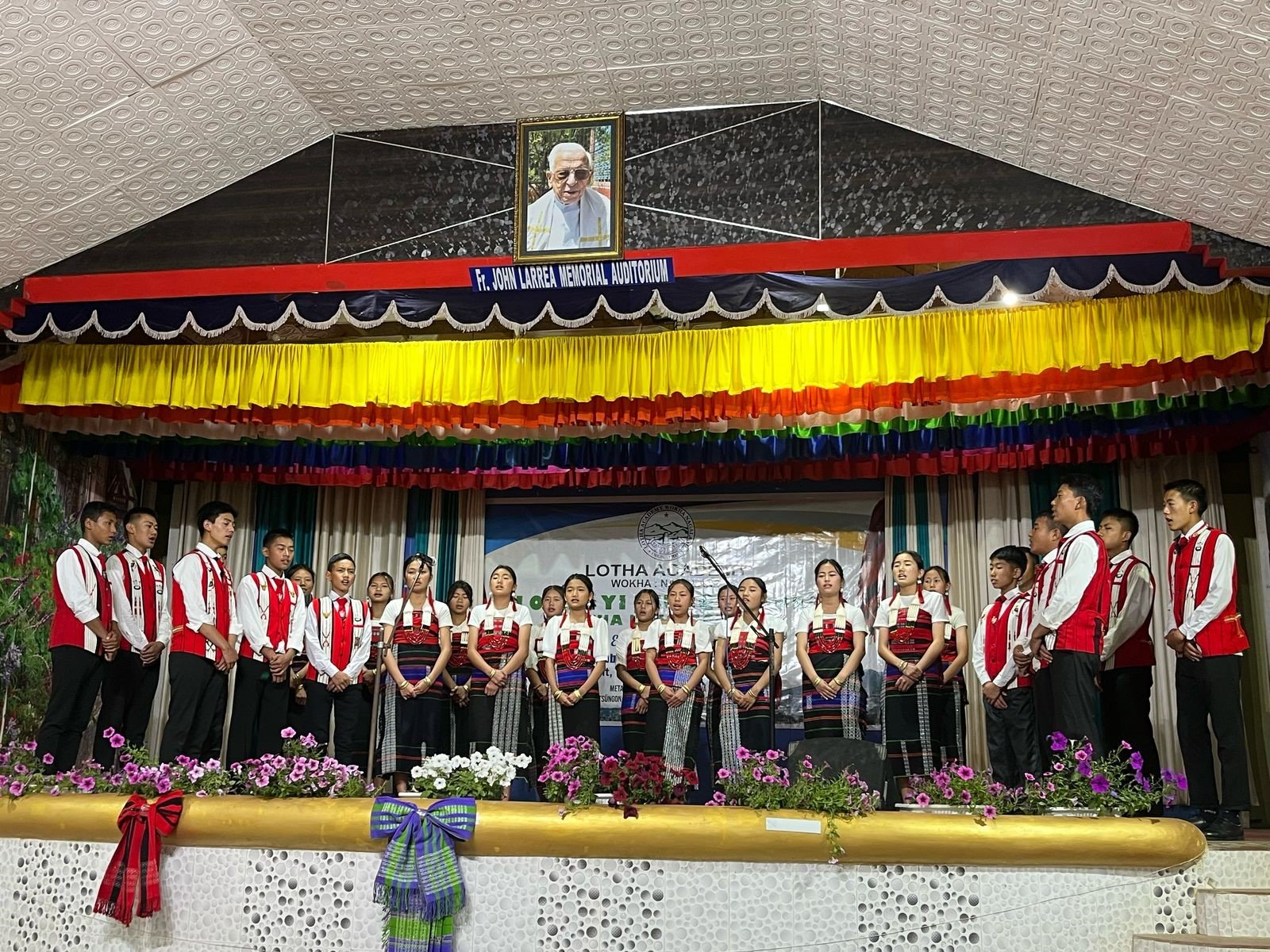The Lotha Academy celebrated the Lotha Language Day at the Don Bosco Youth Centre, Wokha, with the objective to preserve and promote the Lotha language and cultural heritage. The event was attended by various dignitaries, with Orenthung Patton, President, Lotha Officers Association, gracing the occasion as the Special Guest.
In his keynote address, Orenthung Patton reflected on the historical migration of the Lotha people and underscored the central role language plays in shaping community identity. “Language is the only strong thread connecting our community,” he stated, urging community members to embrace and speak their mother tongue as a reaffirmation of their cultural roots. Highlighting the successful academic integration of Tenyidie up to the doctoral level, he pointed out the challenges faced in Nagaland due to the absence of a formally recognised third language. This, he noted, has resulted in limited opportunities in sectors such as the postal service and All India Radio. However, he mentioned that efforts are underway to gain formal recognition for a third language in the state, which could broaden employment prospects for the Naga people.
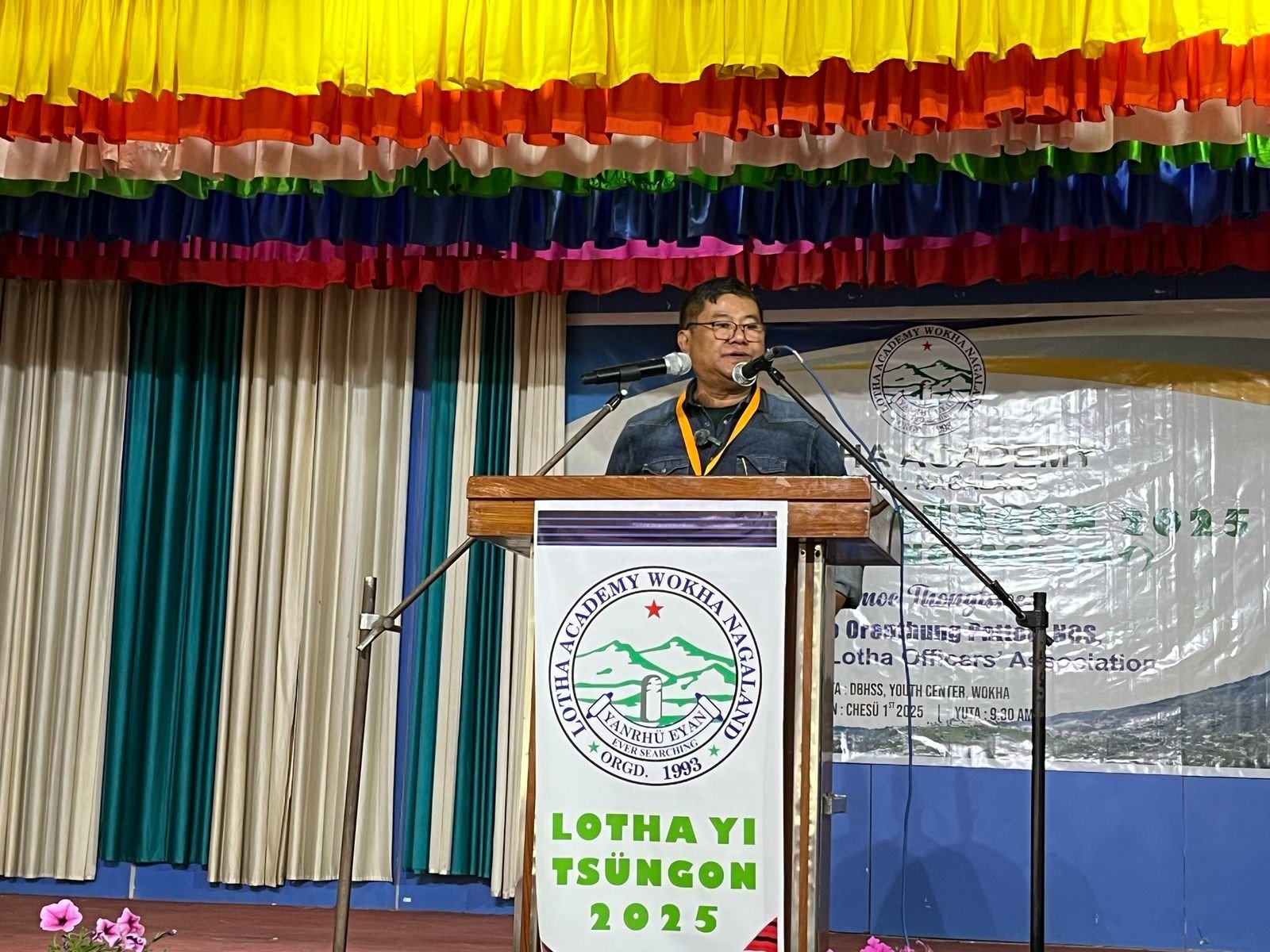
He also called for stronger collaboration between church leaders and the Lotha Academy, acknowledging the influence of religious institutions within the community. Citing the contributions of the late Rev. N.T. Murry during the COVID-19 pandemic—particularly in translating essential information—he emphasized the role of churches in language advocacy. Orenthung further highlighted the importance of integrating modern tools such as artificial intelligence and technology in language preservation, especially in the digital age. He proposed starting Lotha language education in Sunday schools and encouraged the Academy to actively seek support for its initiatives.
Lirhonthung E. Kithan, President, Lotha Students’ Union, in his greetings, described language as a pillar of both cultural and individual identity. He expressed concern over the confusion stemming from the use of multiple Lotha dictionaries, which has created inconsistencies in both spoken and written communication, particularly among students. He appealed for the standardisation of the Lotha language and encouraged young people to use it regularly in everyday interactions.
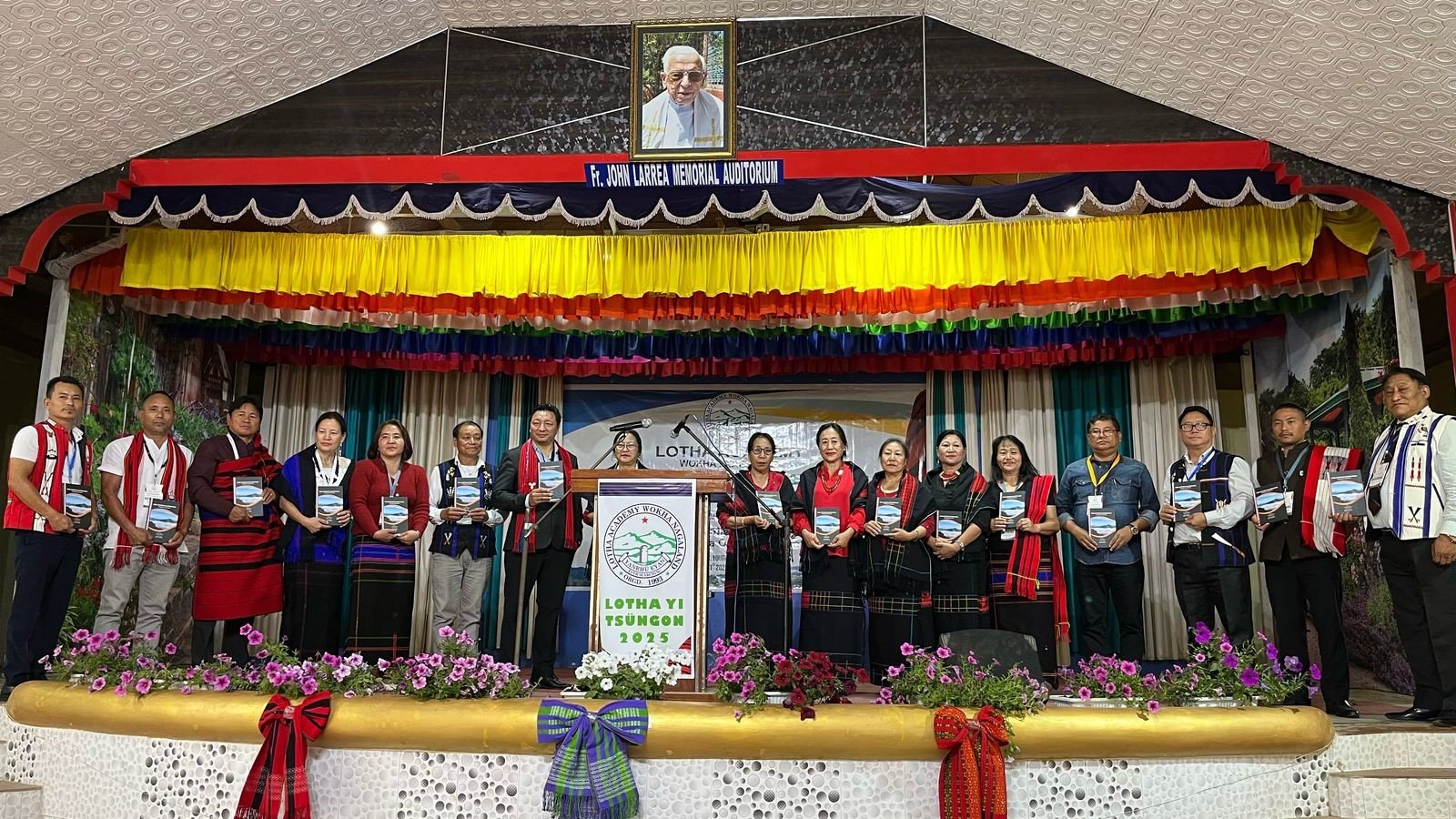
Download Nagaland Tribune app on Google Play

Thungjamo Tsanglao, Chairman of the Lotha Literature Committee, emphasised the personal responsibility each individual bears in learning their native language. He stated that failure to speak or write in Lotha is not only regrettable but also a loss to one’s sense of self, asserting that mastering the language requires intentional and sustained effort.
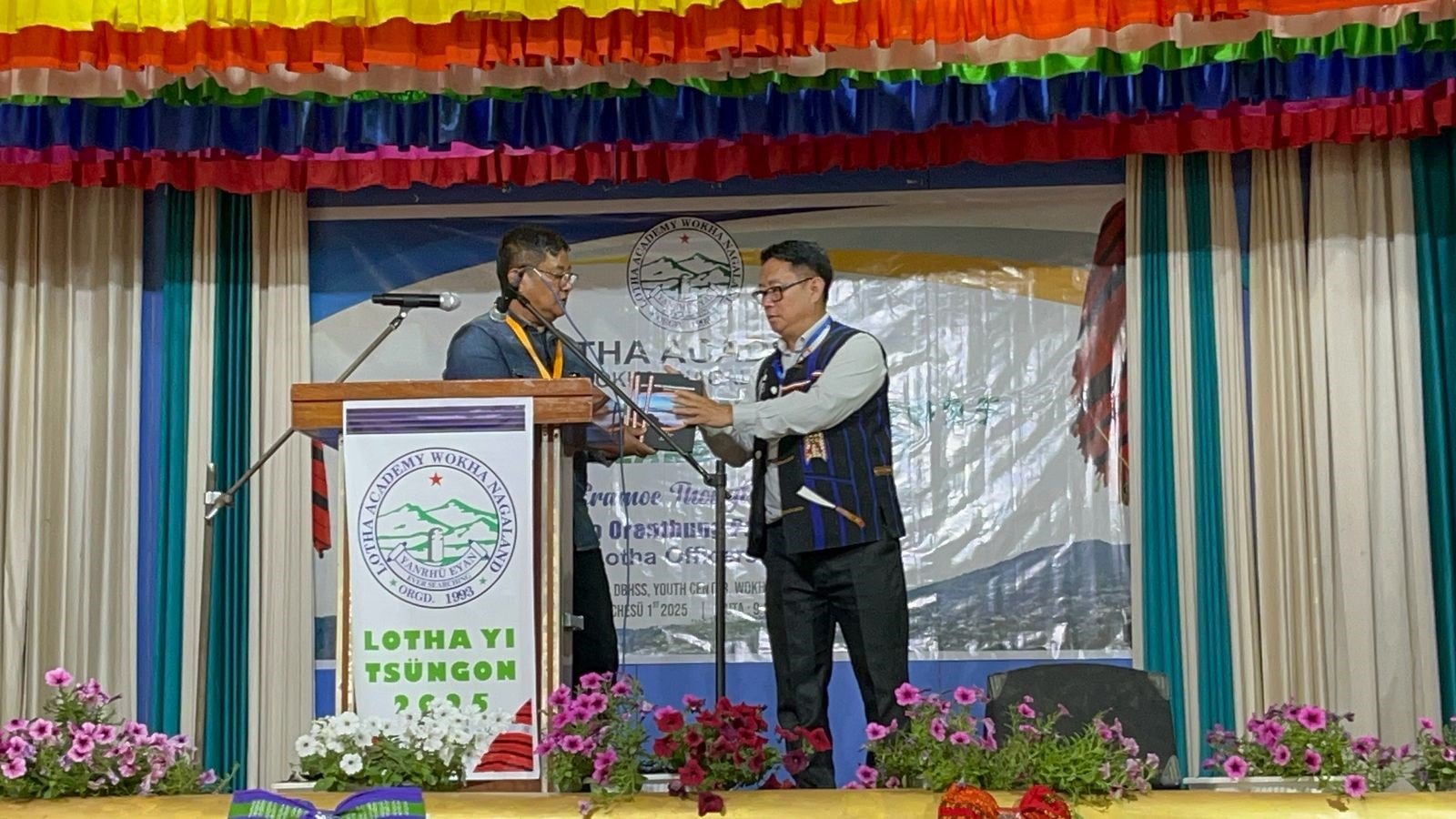
Dr. N. Janbemo Humtsoe, member organising committee, underscored the cultural significance of the occasion, informing that Lotha Language Day will be celebrated annually on May 1 to honour the linguistic and cultural legacy of the Lotha people. He also informed the gathering about events held in Kohima and Dimapur by respective Lotha organisations. Dr. Humtsoe stressed the importance of incorporating the Lotha language into higher education. Although the language is currently taught up to Class 12, he noted the long-standing aspiration to introduce it at the undergraduate level. The Lotha Academy, he said, is in communication with Nagaland University to initiate a Lotha language programme, aligning with the National Education Policy’s emphasis on mother tongue-based education. “Language is our oldest ancestor,” he remarked, highlighting the deep connection between language and ancestral wisdom.
Later, the event witnessed the release of Lotha Motsüran Ekhvürhyucho (Anthology of Lotha Prose) by the Special Guest.
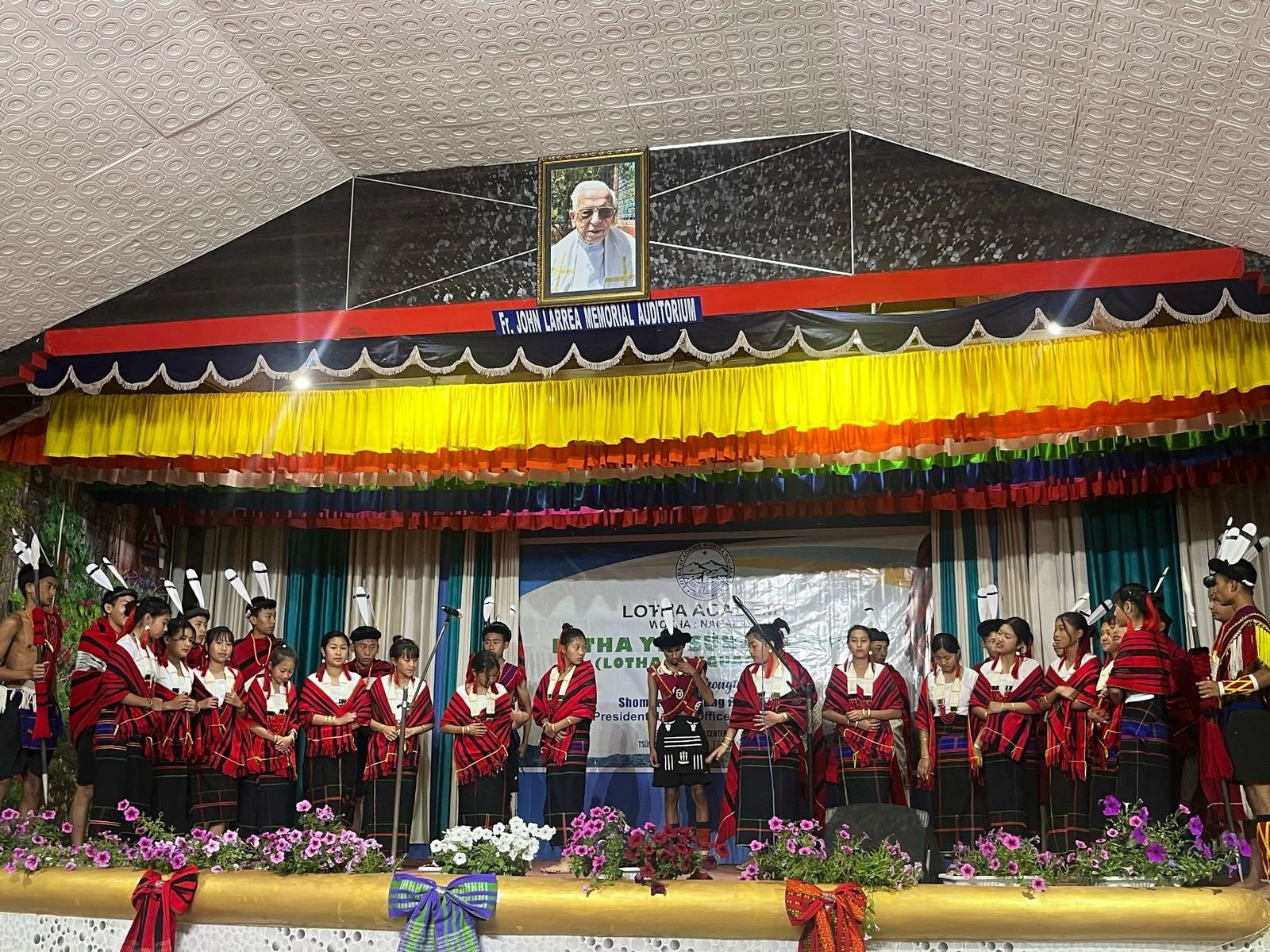
The celebrations concluded with a folk song competition featuring school participants from across Wokha District. PM Shri GHS Wokha Village claimed first place, while Isaiah Ability Higher Secondary School and Gilgamesh School secured the second and third spots respectively.
